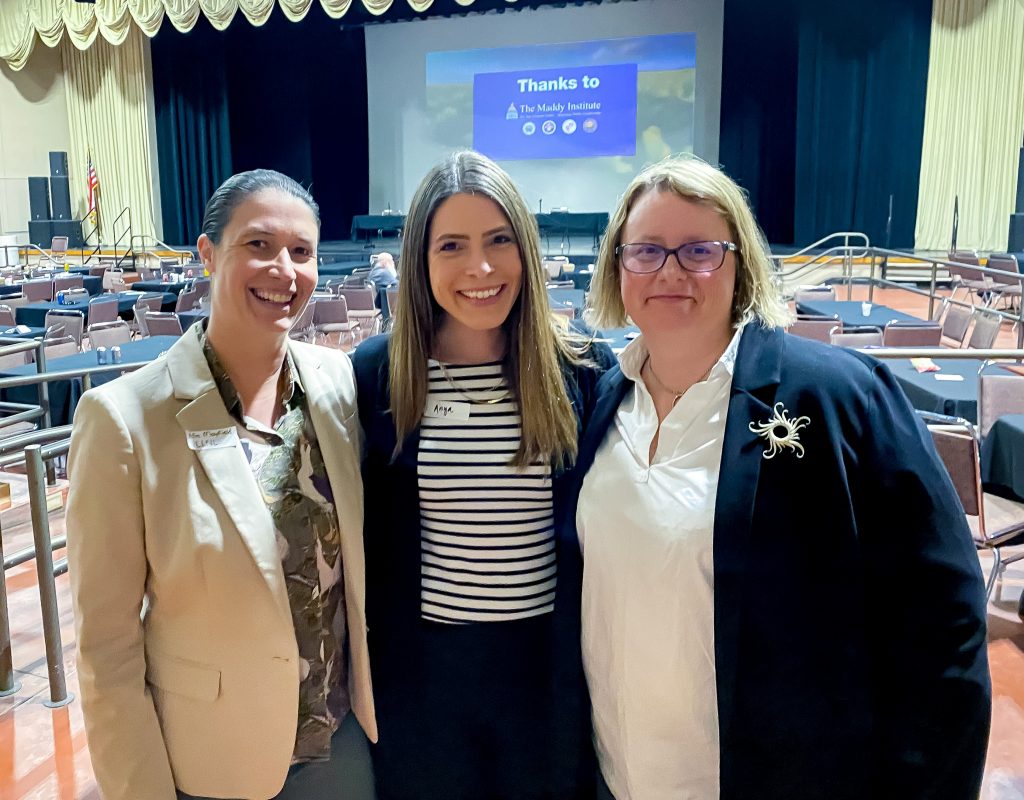
The Maddy Institute, in partnership with Fresno State University, CSU Bakersfield, Stanislaus State, UC Merced, the Livermore Lab Foundation and Climate Now, hosted a one-day in-person and live stream educational summit to address the future of agriculture in California and the role of climate change.
The summit was packed full of presentations and panels that highlighted the uniqueness of the San Joaquin Valley, the potential use of carbon storage in soil, and our agricultural contribution to the national and global economy.
Karen Ross, Secretary of the California Department of Food and Agriculture, kicked off the summit with accolades about the San Joaquin Valley (SJV is one of the top 10 producing counties in the country) and applauded the partnerships between universities in support of Agriculture and Innovation for combating climate change.
We heard from global and local leaders in agriculture, including Hector Lujan, CEO of Reiter Affiliated Companies, Daniel Hartwig the Director of Sustainability from Woolf Farming and Processing, Joe Del Bosque, CEO of Del Bosque Farms, Dennis Parnagian with Fowler Packing Company, Bill Smittcamp, President and CEO of Wawona Frozen Foods and Sarah Woolf from Water Wise.
The common theme shared among these panelists is farming is extremely challenging and the ag business is truly working toward sustainability. What makes this very difficult are the policymakers that continually impose hurdles for farmers to climb. Farming is extremely difficult with constant re-direction from policy makers and the lack of water infrastructure. As the world’s agriculture powerhouses, these local farmers, ag businessmen and women asked why the Central Valley is not just as valued as the “specialty crops” we export worldwide. The “specialty crops” grown in our valley: berries, grapes, citrus, nuts, melons, and more, bring joy and families and friends together, and without them, we would be left with corn, wheat and soybeans.

Jennifer Pett-Ridge, Senior Staff Scientist from Lawrence Livermore National Lab (LLNL) shared how carbon affects the soil. She focused on her findings from the LLNL “Getting to Neural Report”, published in January 2020. The study looked at the opportunity to increase the process of sending CO2 into the soil, and they found that by far, the cheapest option was from forestry and agriculture. With a price point of $11/ton of CO2 from forestry or agriculture, compared to direct air capture with a a price of $500 or more per ton of CO2, they posited that carbon through forestry/biomass or agriculture is affordable and a money maker.
George Peridas, Energy Program Director of Carbon Management Partnerships from LLNL spoke briefly on the Economics of Carbon Geologic Storage on Ag Lands. Due to climate change, he shared that the Central Valley is highly suitable for carbon storage. He provided a timeline visual of how deep the CO2 will be stored underground, the CO2 that will be stored will go as deep as the “Cretaceous” level of rock (greater than 1km). How does this work, you may ask? Well…solid rocks have microscopic space inside of them, where the CO2 will be stored, and this will not interfere with the groundwater. It is not a hard process to put the CO2 inside the rock, but getting it back out is difficult.
California State University, Bakersfield, Economics department presented on the global market and changing policies for exports and organics. UC Merced offered the latest on their “Smart Farm” experiment, including robotics and the future of large-scale farming. Stanislaus State contributed findings on incentivizing fallowing land use for cover cropping and repurposing land in small rural disadvantaged communities in the San Joaquin Valley. Fresno State highlighted its Water, Energy and Technology Center, which supports water, energy and ag-tech innovators and entrepreneurs on their path to commercialization through training, coaching and networking.
Mark Keppler, Professor and Executive Director of The Maddy Institute, closed the day, thanking all stakeholders. He encouraged these continuing conversations, to maintain economic viability, environmental sustainability and social equity of valley agriculture. Additionally, these conversations are necessary and crucial to national security.
Due to the summit’s success, about 200 people attended in person and 450 viewed it online, Mark Keppler advised attendees to keep an eye out for the 2024 summit to continue the conversations around sustainability and valley agriculture.


